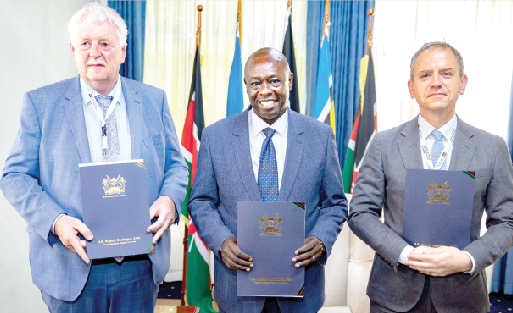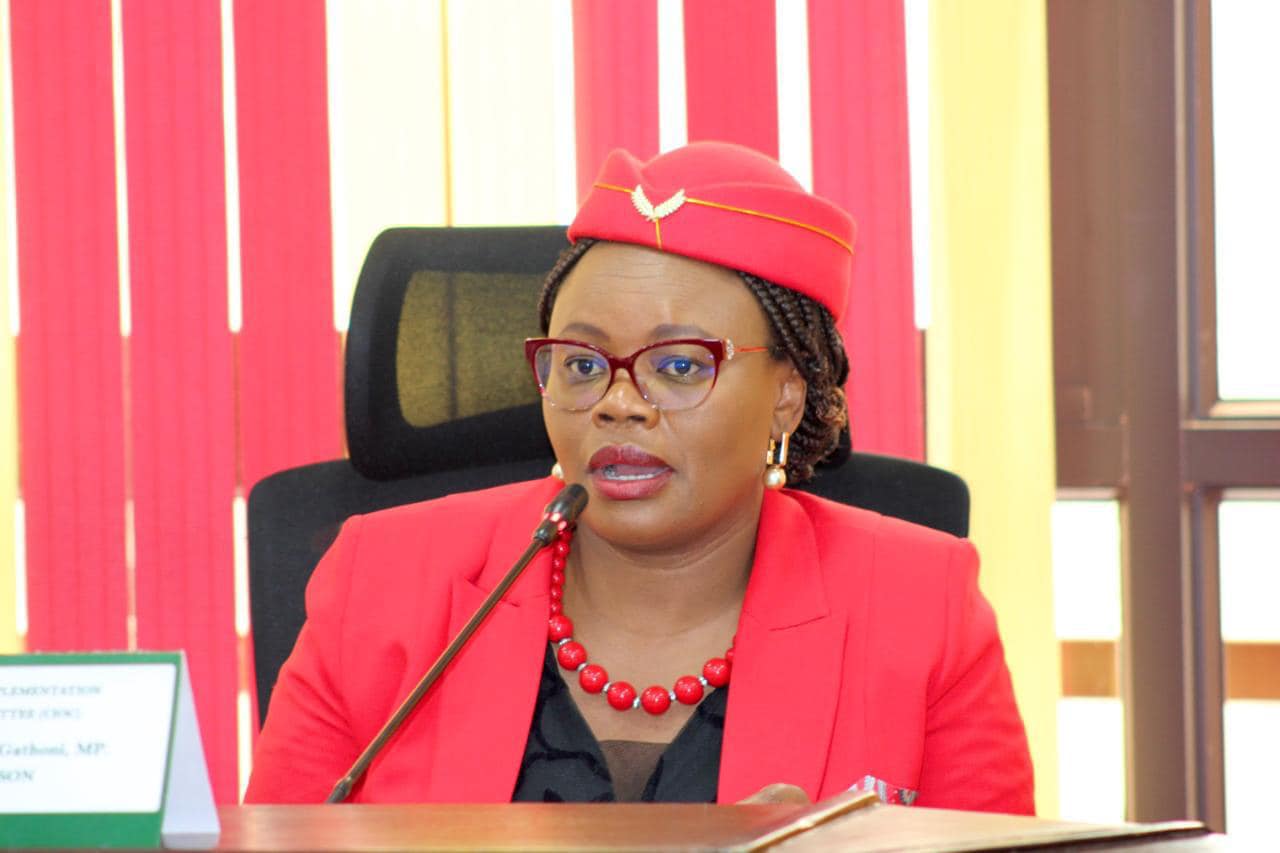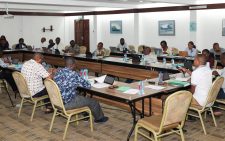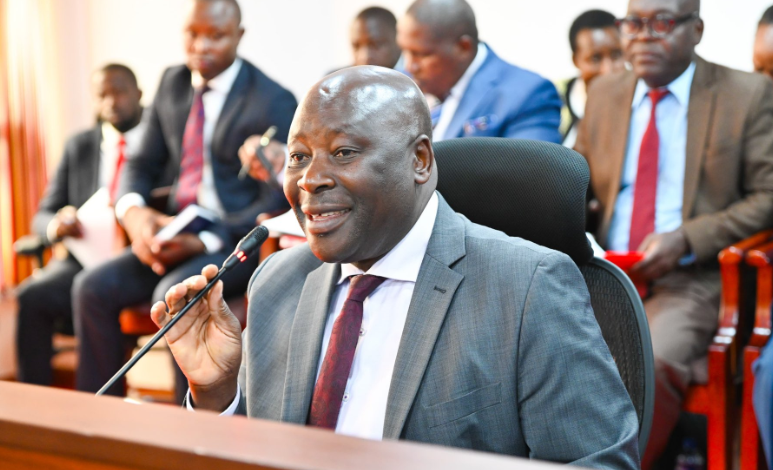Governors clash with Rigathi over El Nino billions

Governors yesterday differed with Deputy President Rigathi Gachagua over funds to mitigate the effects of El Nino as rains continued to ravage various regions.
The Council of Governors (COG), at a press conference denied receiving any funds from the national government to mitigate the impact of El Nino rains.
CoG chairperson Anne Waiguru said that contrary to Gachagua’s assertion that Sh2.4 billion had been released to the devolved units, no county had received any money from the national government.
“We note with concern public utterances that suggest county governments have received funds from the national government to support the mitigation of the devastating impact of El Nino rains,” Waiguru said.
“We take the position that such utterances are against the spirit of cooperative and collaborative governments as envisioned under the provisions of Article 6(2) of the Constitution.”
She spoke after signing an Intergovernmental Partnership Agreement (IPAs) for county aggregation and industrial parks in Nairobi.
“To date, we wish to state that the County Governments have not received any allocation from the National Government to go towards mitigation measures. Almost 37 counties have been adversely affected from the heavy rains and we wish that the National Government can intervene immediately”.
However, Gachagua said there was a misconception that the national government would give county governments funds to fight El Nino, which was not the case. Gachagua stated that the national government would provide funds through county coordination teams, development partners and humanitarian agencies while counties were also expected to do the same.
“We are a little bit shocked to see the governors complaining that they are yet to receive money for El Nino from the National Government. Such money is not forthcoming.
They are expected to use emergency money within their financial provision and to reallocate money within their budgets to intervene for the people they govern,” said Gachagua.
“I want to thank many county Governments. We have seen very serious interventions in Wajir, Mandera, Garissa, Kwale and Busia where the counties have set aside funds to complement what the national government and development partners are doing.”
Bureaucratic hurdle
The Deputy President urged other counties to do the same and use what they have from the shareable revenue, emergency component and other sources, to assist those affected by flooding.
On the other hand, Waiguru decried delayed disbursement of funds saying the process is not only a bureaucratic hurdle but also a threat to the well being of Kenyans.
She said the delay makes counties fail to execute mitigation strategies in time.
“As the heavy rains persist, the need for urgent action becomes increasingly apparent. The delay in financial support impedes the ability of County Governments to execute timely and effective mitigation strategies, putting the lives and property of citizens at risk,” she said.
She said counties are owed Sh62.58 billion from the equitable share that is yet to be disbursed.
Some 13 counties are owed Sh10.17 billion for September, 27 others are owed Sh19.64 billion for October and all counties are owed Sh32.76 billion for November.
As the two levels of government tussled over the funds, the rains continued to wreak havoc across the country.
In Tana River county, farmers are counting losses after they lost hundreds of acres of farm produce since the rains came at a time when they were about to harvest.
Pastoralists have also not been spared and have been forced to flee the village with what they could since they are afraid of being submerged and have said they will not return.
Garsen MP, Ali Wario, who witnessed the movement helped them transport their goods to new areas and told them it would be their permanent home and will help them rebuild their homes and live there.
Those who have fled are currently staying between Minjila town and Garsen Junction, with the Kenya Red Cross Society and Wario providing them with non-food items and food.
Farms submerged
The MP, however, called on the national government to allocate Sh5 billion for resettlement of flood victims.
“We want a permanent settlement because this area is not affected by floods, so we ask for help that they be settled here,” he said.
Omar Kuno, a pastoralist from Bandi village said when they arrived at their new area on Thursday last week and were not able to erect makeshift structures owing to the night long rains thus exposing the children, women, and the elderly to danger.
Mohamed Said, a farmer nearly lost his life after the canoe he was using to ferry some of his crops to Feji village capsized but was rescued.
Kenya Red Cross Society Regional Manager in charge of Coast Hassan Musa said the situation is worsening and asked those still in the flooded areas to vacate and move to higher grounds.
“The problem is that most of the farms have been submerged now so people have lost their property including crops and the ability to plant new crops,” he said.
In Nyandarua, the walls of a dam in Ndaragwa collapsed, causing extensive damage to crops downstream.
Nyandarua North Deputy County Commissioner (DCC) Anjerine Were said the walls of Umoja Mbuyu dam collapsed because of heavy rainfall.
The administrator said no injuries were reported from the incident that happened at 6 am.“The wall of the barrier at the Umoja Mbuyu dam collapsed causing all the water to flow downstream.
“It’s suspected the wall collapsed at around 6.00 am. No fatalities reported although unknown value of crops including onions and potatoes were destroyed in Pesi area,” the DCC said.
In Kiambu county, families started relocating to safer areas following floods occasioned by the ongoing heavy rains.
Most affected by the flood situation that might worsen as rains continue to pound are Kisii, Kamenu, Kiganjo and Muthaiga villages where residents are now having sleepless nights after their homes became flooded.
– Additional reporting by David Macharia and Mathew Ndung’u and KNA









